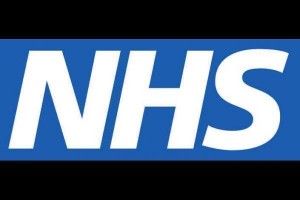Experts call on health leaders to review and implement findings for the benefit of patients and the wider health and social care system
- An inquiry involving NHS, charity and private sector experts is set to reveal a growing body of evidence on the value of clinical homecare in a new White Paper being launched today
- The White Paper builds a compelling case for the role of clinical homecare in addressing two of the most pressing challenges facing today’s NHS:
- Patient benefits: faster recovery, improved quality of life and fewer-hospital readmissions
- System benefits: reduced pressure on hospital beds, waiting times and inpatient visits
A new White Paper being launched today reveals the value and future potential of clinical homecare in helping to address two of the key challenges facing today’s NHS: quality of patient care and system capacity.

Christine Outram
The inquiry was launched as there was no specific mention of clinical homecare included in the NHS Five Year Forward View (5YFV) – the NHS roadmap that outlines the future vision of an NHS which can deliver better care and a better experience for patients.
The White Paper sets out to clearly define clinical homecare and highlights the high level value it delivers to patients and the wider health and social care system. The case for clinical homecare is explored across five different models; home cancer care, end of life care, home treatment of long-term conditions, timely discharge from hospital, and virtual wards. All five clinical homecare models meet the guiding principles set out in the 5YFV.
The expert panel defined clinical homecare as: Integrated care, treatment and support that takes place in a person’s home or place of residence. This can directly reduce the need for or prevent an overnight or inpatient stay in hospital or a day case or outpatient visit. This can include patients with more severe conditions and those with long-term conditions. Normally, the hospital or NHS provider retains responsibility for patient care.
Patient benefits
The White Paper identifies wide ranging patient benefits across the five clinical homecare models reviewed. These include healthcare outcomes such as faster recovery, improved quality of life and fewer hospital readmissions, as well as practical benefits, such as not having to travel to regular hospital appointments. A study carried out at the Christie NHS Foundation Trust showed that when cancer patients received treatment and nursing care at home, there were significantly fewer side effects and unplanned admissions compared to Christie best care alone.
System benefits
Capacity remains an ongoing problem in NHS hospitals, heightened by a growing ageing population and an increasing number of people living with multiple conditions. Clinical homecare can alleviate capacity pressures by freeing up beds, reducing waiting times and reducing the number and duration of inpatient visits. This in turn allows patients to flow through the system more efficiently freeing up resources for those with more acute healthcare needs:
- In 2014, 21 pioneering NHS Trusts across the UK were using Healthcare at Home’s virtual ward model, saving 136,000 hospital bed nights by treating appropriate patients at home. University Hospital Southampton NHS Foundation Trust used the capacity released by their virtual ward to invest in specialist services and support its move to become a regional trauma centre
- 84 per cent of people on Macmillan Cancer Support’s end of life care service in Midhurst Macmillan Specialist Palliative Care Service died in their preferred place of death in 2012/13, resulting in fewer A&E visits and nights in hospital
Clinical homecare is already making a significant contribution to the modernisation of the NHS. Bigger system benefits are where the real value of clinical homecare can be found, including helping patients to manage their conditions, be treated in a more favourable environment and ultimately get better quickly, enabling many patients to return to work or school.
The White Paper, being launched by the expert panel at an event at the Houses of Parliament today, clearly confirms the value that clinical homecare is currently providing for patients and the NHS. The clinical homecare market is growing at a rate of more than 20 per cent per year, a trend which if it continues, could deliver even greater value. The inquiry was funded by Healthcare at Home, the leading provider of clinical homecare in the UK.
To find out more we interviewed Christine Outram, Chair of the Christie NHS Foundation Trust to find out more.
Patient Talk – What is clinical home care?
Outram – Well clinical home care is hospital level car that is provided in people’s homes and it can be provided by the NHS and it is provided by the NHS a lot or it can be private providers and charities.
Patient Talk – And how is it provided?
Outram – Well essentially rather than admit people to hospital to have particular treatments or be looked after they’re people are provided with the same level and treatment of support at home by staff who go into the home with whatever it Is that patient needs.
Patient Talk – OK and who uses clinical home care?
Outram – Normally it is provided as part of an interracial package of care delivered as part of the NHS and the sort of patients who can benefit, there’s a big range of them really, it can be provided by for people with cancer, for people at the end of their life, elderly people sometimes who become quite ill but actually could still be looked after at home if somebody went to do that, sometimes people with long term conditions who are on drug regimens called ‘logics’ they can be quite successfully treated at home, so a whole variety so that’s just the start really.
Patient Talk – And what are the alternatives?
Outram – Well the alternatives are that people would be treated in hospital, quite often local primary care and district nurses will provide a lot of care for people at home but when it gets to a certain level of severity they are not set up to do that so that’s at the point where people would say ‘ well that person needs to be in hospital’ but then this person may not need to be in hospital if more was available at home as part of a properly supervised programme so that’s what we are talking about.
Patient Talk – Ok and what is a virtual ward?
Outram – Well a virtual ward is a way of allowing patients to receive hospital care in their own homes so like clinical homecare, normally provided into two ways either that people can leave hospital more quickly well remaining under the car of the hospital, that’s one way of doing it, and another way I suppose is what I have just refereed to, avoiding a hospital admission so this patient has become quite poorly, needs a hospital level of care and supervision but doesn’t actually physically need to go to the hospital, the hospital in a way can come into the home and that’s what it is.
Patient Talk – Ok and is this not just a way of freeing up beds from people who will not live to save a few pennies?
Outram – No absolutely not, they can be cost saving sometimes there is a cost saving and sometimes there isn’t but that’s not really the point it’s a way of adding to the options for patients, many people prefer to receive treatment at home, I know I certainly would and I would want that for my family if it’s possible to give me the care at home who wants to go somewhere else its very stressful, I am much more likely to feel in control if I am being treated at home so it’s not about saving money and freeing up beds, it does free up bed of course which is good as they can then be used by people who don’t actually want to be at home or can’t be and who needs to be at a hospital.
Patient Talk – And finally what is 5YFV?
Outram – It refers to the 5 year forward view and all that is an unfortunate abbreviation of a plan for the NHS that was published about a year ago and the reason that we are launching this report today is because about a year on as people work to implement this vison for the future we really do feel strongly that clinical homecare should be part of it.




